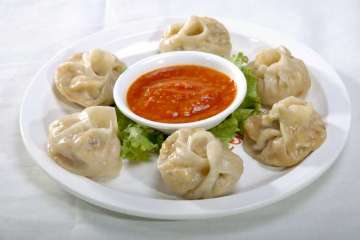How monosodium glutamate (MSG) in momo is damaging your health?
There are not one but many reasons why momos are the worst street food among all.
For those who love this South Asian cuisine like anything, this post is going to hurt you real bad. We’re going to shed some light on the fact that momos is indeed a silent killer. The only time when momos are good for your health is when you’re preparing it at home and under hygienic conditions. Otherwise, momos from the roadside vendors are only the harbinger of some serious infections and unwanted weight gain. In this post we will give you not one but many reasons on ‘Why not to eat momos’. Here we go.
Momos or any other South Asian cuisine makes an extensive use of this ingredient called monosodium glutamate. Commonly, we refer to it as ajinomoto. It is used to enhance the flavour of the food, but there are many hidden health hazards associated with this simple-looking ingredient. Popular beliefs have it that large doses of MSG or ajinomoto can cause headaches and other discomforting feelings, which is known as ‘Chinese Restaurant Syndrome’. Though, it is safe to consume MSG within a customary range, but overuse of this ingredient in the food can develop serious symptoms in people.
Momos are prepared using ‘bleached’ maida. The refined flour used to prepare this succulent savoury is bleached with chemicals like Azodicarbonamide, chlorinegas, benzoyl peroxide. It is also said to have traces of alloxans, which imparts the soft texture to the flour. These bleaching chemicals cause a lot of harm to the pancreas, hampering the insulin-production capability of the organ. In a laboratory testing, bleaching agents were able to cause diabetes in the rodents.
The other and important factor is, we cannot be 100% sure about the hygiene with which the food is prepared by the vendors. Mostly the vegetables and chicken used for making momos are stale and not washed properly. Most of the chicken products at unhygienic cheap outlets have tested positive for E. Coli bacteria.
A harrowing fact was revealed by a study conducted by Institute of Hotel Management Catering and Nutrition, Pusa. It showed that most of the Delhi street food, particularly, samosas, golgappas, burgers and momos contain ‘faecal matter’. The pathogens included bacillus cereus, clostridium perfringens, staphylococcus aureus, and salmonella species. These bacteria are responsible for causing diarrhoea, abdominal cramps, typhoid and severe food poisoning.
Also Read: BJP legislator wants momos to be banned as they cause life-threatening dieases
What’s the final verdict?
Eating fast food once in a while doesn’t impact health to that extent. But if your momos consumption exceeds thrice a week, then you must go through the adverse impacts you’re putting on your health. All the street foods, not particularly momos, are harmful for health. But momos tops the list as it has a obnoxious combination of all the wrong reasons. If you’re a lover of momos, then better prepare them at home without using MSG.
